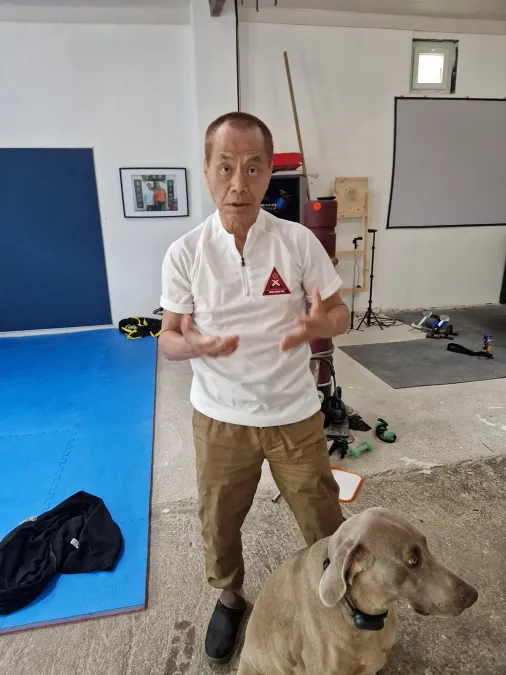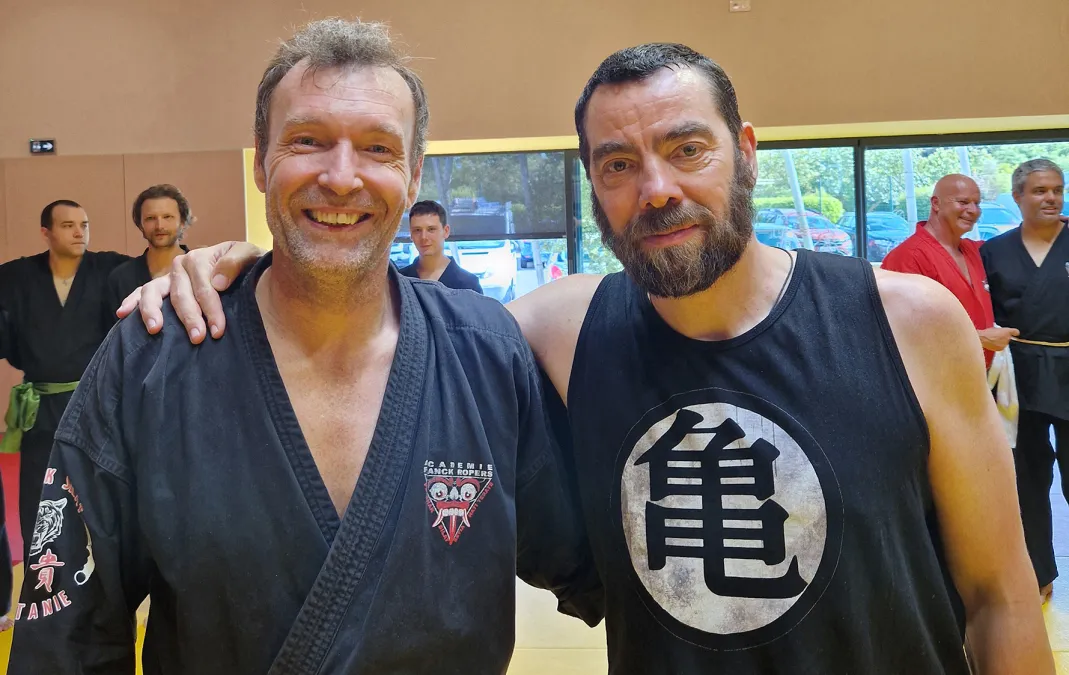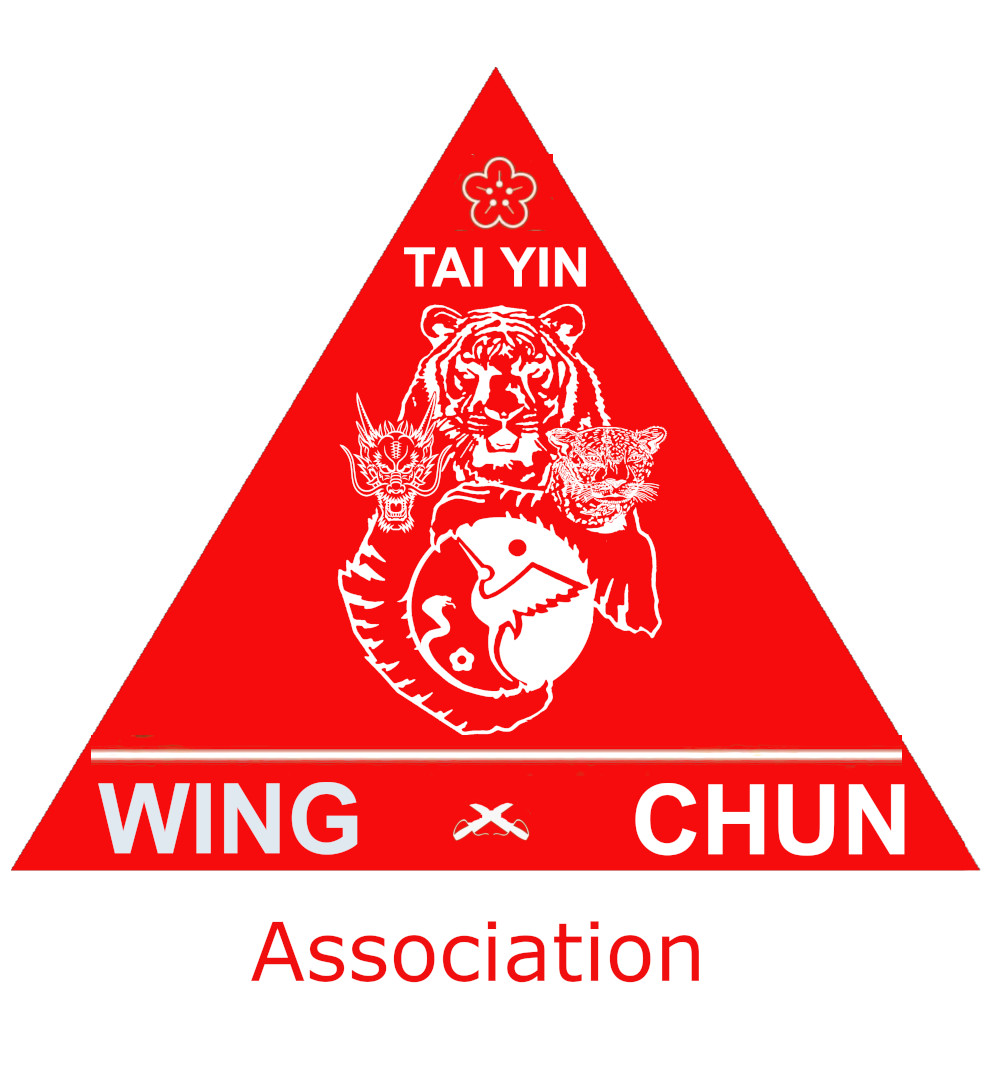A Brief History of Wing Chun with Ip Man and Ng Chan
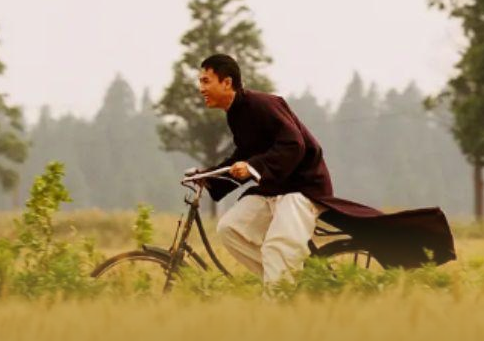
What is Ip Man's real strength in history?
Author / People's Literature Publishing House
I first heard of Wing Chun through Bruce Lee, and I first met Ip Man through Bruce Lee.
Bruce's father, Lee Hoi Chuen, and my cousin, Zi Luo Lian, both worked in the film industry, knew each other, and lived very close to each other. My cousin had her own car and had rented a villa for a long time in the New Territories, where there was a swimming pool and other playgrounds, and Siu Lung and I liked to play with my cousin. I started practicing kung fu at the age of seven, and around thirteen, Siu Lung told me he was no longer learning kung fu with Siu Hon Sang and had switched to Wing Chun.
He kept bragging about the excellence of Wing Chun. I mocked him for his naivety: what could he know after learning kung fu for two or three months? Besides, I had never heard of Wing Chun. He told me he had just mastered the "Horse Chasing and Ripping Punch" (a Wing Chun move involving mounting a horse and performing a series of "Sun Character Punch"), which was as fast as lightning. Although Siu Lung was two years older than me, since I had been diligently practicing in different kung fu schools from a young age, and as I enjoyed competing with others, I could not resist hearing him brag so much, and I had to try with him. We immediately faced off on the terrace of my cousin's house at Po Le Lane (Po Le Lane is a street in Tsim Sha Tsui, Kowloon).
I don't know what technique he used, but his punches were like machine guns, short and fast, and I couldn't block them! He pursued me step by step and landed 6 or 7 punches to my face in succession. My face was covered in blood. I was used to bleeding, but I had never been defeated so completely. Convinced that the reason I couldn't avoid it was that the terrace was too narrow for me to maneuver, I asked Siu Lung to go to the roof and try again, but it didn't change the outcome. Still determined, I asked him to accompany me to nearby King's Park to try again, but the result was even worse. After losing three times to Bruce Lee, I decided to go with him to meet this Wing Chun master named Ip Man.
The day I arrived at the martial arts school, it seemed there were only four people other than Bruce and me. A tall, thin young man and a fat middle-aged man were chatting, and another small old man in his fifties was reading a newspaper. There were no weapons on the wall, only a bag, completely different from the martial arts schools I had seen. Xiaolong called him "Master," and he replied indifferently, "Why are you free today?" To my eyes, this old man to the left and right did not look like a martial arts master, thin people, thin eyes, yellow face, a hand holding a cigarette in one hand and a newspaper in the other, legs crossed, sitting like a gentleman. Siu Lung told Ip Man that I was Hung Chai, his defeated, and now wanted to learn Wing Chun, and he deliberately emphasized my martial arts background. Ip Man looked up at me and asked, out of breath, to demonstrate some punches. I was about to do a series of iron punches to show my kung fu and a series of beautiful Erlang punches, but he stopped me after just a few moves. He told me: "There are opponents in a fight, you fight against yourself, no need to watch, if you want to learn Wing Chun, next time bring 8 dollars for registration fees." I told him I had money with me and gave it to him immediately. Ip Man was very surprised and shouted, "Chan, help him open the punch!" Since that day, my life has been linked to Wing Chun.
When I first learned boxing, I went directly to the martial arts school at 3:45 pm after school, not wanting to lose a minute. At that time, apart from Siu Lung and me, one or two of my brothers on leave were present at the school, and there was practically no one else. Ip Man usually gave us a few tips and asked us to train in front of a mirror or do Chi Sau, but most of the time, he sat smoking and reading the newspaper, so there was no martial arts practice atmosphere at all. To create an atmosphere, I invited half a dozen of my best friends to join us, and it was a lively event. Unfortunately, it didn't last long, and within a month, all these students left Ip Man to learn from other masters.
In fact, it's hard to blame my classmates; Ip Man himself has much to reproach himself for. In his daily training, Ip Man would tell us to practice kung fu routines or ask us to do Chi Sau or empty punches, and he rarely explained kung fu principles. Every time we asked how he did it, right or wrong, Ip Man always replied: "Not wrong! It's good!" (in Cantonese, meaning: "Not bad! Quite good!") If there was something he didn't understand and he asked for advice, Ip Man also replied: "Go back and think about it yourself, then tell me." When we told him the answer we had thought of, good or bad, the answer was always the same: "Very good! How smart!" If different masters and brothers asked the same question and gave completely different answers, Ip Man always gave the same answer: "Both are right, kung fu must be different from person to person!" Only when we had tea and dinner with the Master did he open his mouth and say a word or two about Kung Fu theories.
Siu Nim Tau
At that time, due to the burden of life and work, even those who had the money to learn kung fu could not find much time to do it, and it was enough to go to a martial arts school one or two days a week. Therefore, it took two to three months to learn the first set of "Siu Nim Tau," and a year, or even longer, to move from "Single Chi Sau" to "Double Chi Sau" at the earliest. Those of us who went to school trained every day after school, which allowed us to learn faster than the other students, and after two or three months, we began learning double sticky hands and chasing horse punches. I don't know why, but late at night, I suddenly received a phone call from my Sifu, Yip Man, telling me to go to the village of Li Cheng Uk where he lived to train starting tomorrow and asking me to inform Siu Lung and another student.
I knew where he lived, and my family driver, Fong, had driven him home several times. The place was so small that there were not even toilets or a kitchen, just a small sink. Years later, I learned that when Ip Man came to Hong Kong and lived with a woman from Shanghai who was addicted to opium, all my brothers, except for Wu Chan, were opposed to him being with this woman, and they even sent an ultimatum to Ip Man (written by Xu Shangtian), which basically said: if Ip Man did not leave the grandmother from Shanghai, they would no longer follow him. At that time, Ng Chan was the only one who did not sign the letter.
After moving to the village of Li Cheng Uk, in the early days, we could really see none of our brothers except Ng Chan. The Master did not get angry and said nothing to our two or three students, as if nothing had happened. Yet, we could see he was powerless and had a sad face all day long. Every day after school, I was the first to arrive at the martial arts school. Each time, the Master's son, Wah Chai (at that time, I didn't even know that Ip Man had a wife and children on the mainland) waited in front of the sweet water shop, knowing I would look for him to eat a bite with me.
He was much younger than me, but his appetite was not thin: besides the sweet water, he could sometimes eat an entire salted meatball by himself! He often told me he hadn't eaten anything the day before or at lunch. I often wonder why the world is so unfair. The Kowloon Motor Bus Company's repair shop and Ip Man's residence were very close to each other. After Ip Man moved, Ng Chan brought several colleagues from the KMB to come and learn kung fu from Ip Man. As far as I remember, Mai Pu must have been the first. On the first day, Mak Poo arrived wearing long rain boots and overalls. It was a sunny day, and when Ip Man saw his clothes, he asked: "Is it raining a lot today?". Ip Man's humor clearly showed he was in a better mood than when he first settled here. In fact, Ip Man was a man with a rich sense of humor and wisdom.
Shortly after I arrived in the village of Li Cheng Uk, I continued my private studies and rarely went to the martial arts school. In fact, Ip Man did not want me to go to his house because the place was crowded and unsafe, and he was afraid something would happen to me. Sometimes, out of curiosity, I wanted to know what other masters and brothers were practicing, so I would go sit. But every time I saw him, he looked unhappy and told me to sit down and shut up. I often said I wanted to play with my brothers, but he wouldn't let me and gave me no explanation. A few times, I saw brothers who no longer followed the Master come sit with me, and although the master-disciple relationship was over, they were still polite and chatty with each other, as if nothing had happened.
One of the most memorable events for me was a particularly cold day around the Chinese New Year when my driver took me to see Sifu. Friends from my father's newspaper office (Leung Shiu Hung's stepfather, Mui Man Ting, had been Ye Ting's adjutant and an instructor at the Whampoa Military Academy, and after arriving in Hong Kong, he founded and became the president of Wen Wei Po) had sent me goods for several years, and since my family couldn't use that much, I borrowed a flower to honor the Buddha and wanted to give it to Yip Man. Just as I was starting, an older brother arrived, saying a family member was at his home for a few days and he wanted to get back the blanket previously lent to the Master. The Master smiled and said: "Fine! I'll pack it and give it to you." There was no door to his room, just a thin curtain separating it from the living room, and everyone could see there were only two canvas beds, two blankets, two stoves for boiling water, and some large cardboard boxes in the room.
It was freezing cold, so how could the remaining blanket suffice to protect a family of three from the cold? Although I was just a teenager at the time and didn't know much about the world, I could feel the warmth and coldness in those three words and every one of my movements. What I admire most about Ip Man is his determination to stay poor. At that time, he couldn't afford three meals, but although he had no choice, he never said a word of complaint. Despite his poverty, he was always clean and tidy. Despite the heat, he did not unbutton a single button or bare his shoulders like others. All of this was proof of admirable Confucian conduct.
The usual topics of conversation between the master and me were nothing but kung fu. One day when he came, I could see 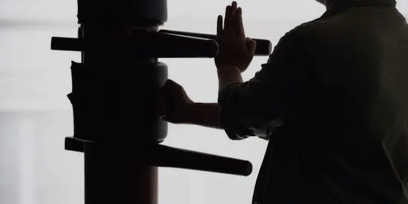 that he seemed full of thoughts, probably because Xiao Long had left us a few days earlier to study in the United States.
that he seemed full of thoughts, probably because Xiao Long had left us a few days earlier to study in the United States.
Chi Sau
To him, it was probably a final farewell. For a while, we were all a bit uneasy and lost. After practicing Chi Sau with me that day, when we sat down to take a break and drink tea, he asked me to sit seriously and asked if I wanted to officially worship the master. At that moment, I found it very strange and did not understand what his intention was. I asked him: "Aren't we already master and disciple? Haven't I always called you master?" He seriously explained that we only had a teacher-student relationship, that I taught you to learn, and that we didn't need to commit to each other; if you worship the master, according to the ethical traditions of Chinese martial arts, the master and disciple are like a father-son relationship without blood ties, they can trust each other, rely on each other, and both parties commit for life. Ip Man said: "I have observed you for a long time, I am now ready to accept you officially as a disciple, if you are willing and can make a commitment, we can choose a day to perform the worship ceremony." I was touched by my master's words and instantly accepted. Although I was young and didn't know much, I could feel that my master was particularly loving and caring, and I was very happy to receive my parents' permission to officially become a master. In September 1958, I had a formal ceremony at home where I knelt three times and made nine bows to show my respect to the Master. In addition to the invitation to pay respects to the Master, I also prepared oranges, roast meat, and other things. That day, my master was accompanied by three people, one of whom seemed to be Li Min, and once the ceremony was over, we went to dinner together to celebrate the event. At that time, paying homage to a Sifu and accepting an apprentice was an important event, and the ceremony was solemn, including paying homage to heaven and earth, paying homage to the grandmasters (to pay homage to the grandmasters, a piece of red paper with "Wing Chun grandmasters of all generations" written on it must be put on the wall), reciting the school's rules, talking about ancestral teachings, kneeling for nine bows, offering incense, and pouring tea, and so on. On the contrary, in today's society, many people who come to teach kung fu do so to support their families and do not do their best to teach kung fu. Those who want to learn kung fu do so for their studies and work, and most of them have more "form" than "strength." It is clear that many traditions of kung fu culture are no longer what they used to be, and many traditions of kung fu culture have disappeared in name only. Shortly after learning private kung fu, Sifu's attitude towards me changed drastically. He treated me better than before, not because I gave him a lot of money for private lessons, or because I often handed over things I had received from other people, but because I was truly bold and willing to try what he himself wanted to try. When Shifu heard that I had fought someone from another sect, he was even more nervous than I was and asked very detailed questions about the fight afterward. When other sifus went to fight, he was only interested in their victory or defeat, congratulating them if they won and gently urging them to train more if they lost. In general, those who officially represent Wing Chun to fight with others are several older brothers, and Sifu often said they were Qing Bing Toshi, with the word "courage" engraved on their chest. We were only teenagers, and we participated in martial arts competitions on rooftops and street fights, which were different from formal fights with other sects, but it was also an opportunity to learn and train. At that time, bare-knuckle fighting was very popular and took place almost every day.
1950
I remember that in the 1950s in Hong Kong, there were two sensational newspapers, Jing Pao and Red and Green Daily News, which published news almost every day, saying that such and such a family and such and such a sect had said something and caused a lot of disputes. For example, I remember information saying that a disciple of Cai Li Fo had threatened to tell the public: "Wear and throw, hang and whistle, Hung Gar Kung Fu is rubbish!" (Wear, throw, hang, whistle, and push, that is, throw, whistle, and push, etc., are the types (basic techniques) of Cai Li Fo. The meaning of this sentence is that after practicing Cai Li Fo kung fu, one can easily defeat Hung Gar.) At that time, there was no way to confirm if it was true or not, but those who had learned Hung Gar were, of course, very uncomfortable when they heard it, and they immediately wanted to find the people of Cai Li Fo to compete with each other. There were winners and losers at that time, but winning or losing did not mean that such and such kung fu school was superior, it was simply a personal performance. If one lost, they returned to their master, discussed, studied, and improved, trained hard, and then made an appointment for the next match. This enthusiastic atmosphere attracted many young people to practice martial arts, which, added to successive waves of promotion in martial arts novels, magazines, and movies, ultimately contributed to the rise of martial arts. The skills and qualities of different martial arts schools were continually improved as they experienced real combat.
At that time, I also wanted to test my own kung fu. Generally, I would first inquire about my opponents, then pay one or two months of tuition to learn and study their kung fu, and when I felt confident that I could beat them with Wing Chun, I waited for the opportunity, and when I saw that there was only a sifu or an assistant instructor at the school, I began saying things like "this move doesn't work," "this move is impractical," and so on. "This move doesn't work," "This move is impractical," and so on. What instructor can withstand the provocation of a teenage student? Nine times out of ten, he had to give him a lesson. Because I was young and a student of this pavilion, I would certainly have kept my hands to myself on the first hit, not wanting to risk my little life. But when they were hurt by me and saw that I had fought well, they understood that I had clearly come looking for trouble, and they immediately fought me to the death. But of course, even if I lost or was beaten and injured by them, because I was a student who had paid tuition and a student brother who was only a teenager, they would not dare do anything to me. If I was defeated and injured by me, they would be even more embarrassed to tell anyone about it.
What interested Ip Man most was to know the course of each fight, asking very detailed questions and giving a lot of advice; sometimes he agreed with some of my techniques, sometimes he suggested others, specifying that when I found myself in the same situation next time, I had to find an opportunity to try his suggestions, whatever they were. He also pushed me to practice repeatedly and explained the reasoning in detail. He said this was the real way to find the Dharma of the heart. I used this method to try the practice; the risk was low, and there would be no major problems. The master also thought this method was good, but he also reminded me to be careful.
Indeed, once, I almost had serious problems. That day, I had met a friend to go see the 5:30 pm movie, and I saw an advertisement on the street saying that a certain sect was recruiting students in a nearby place. In a moment of excitement, I didn't think much and told my friend to wait downstairs while I went upstairs alone to explore the martial arts school. As soon as I entered the door, I felt bad, like in many places I had already seen, and in the house of ten or twenty people, there were two or three who looked very familiar to me, as if they had been seen somewhere before. While I was still thinking about it, an older brother in his thirties or forties, the size of a pocket, suddenly exclaimed: "It's him! It's him!" Before anyone could react to what was happening, I realized what was going on! It turned out I had frequented this martial arts school and fought with this master years ago, and I had accidentally broken his forearm bone. A dog bite is quickly forgotten, but a person bitten by a dog remembers it for a lifetime. When he saw me, of course, he was filled with an unnamed anger. Fortunately, the crowd heard their master shouting and didn't think about what was going on and didn't react much, probably because this master hadn't talked about it to anyone else. I turned around and ran, and halfway down, I heard many people chasing me. My friend waiting for me on the stairs was scared to death seeing me being chased by so many armed people, but I didn't care about him and headed towards the crowded area. Luckily, no one thought my friend and I had come together, and many of those chasing me had weapons in their hands and didn't dare chase me into the big crowd. When I told Sifu about it later, he immediately told me how far-sighted he had been. The first time I went to compete with someone under the pretext of learning kung fu, he told me that since it wasn't a public competition, no one should ever know I had a connection with Wing Chun. He told me that if others learned of it, what would he do if all the martial arts schools called dozens of people to force him to give up, fleeing the monks and not the temple? Shortly after being transferred to a private school, Sifu learned from a few more people in the village of Li Cheng Uk, and one could see that he was in a happier mood than before. The age difference between my master and me is too great; apart from kung fu, we basically have nothing in common; he never talks about others, never complains about the world, and never mentions his own past, but apparently he talks more, and the humor in the phrases, sometimes it takes half a day to understand. He particularly liked naming flowers for other people, which was very appropriate.
Although he was unhappy that I returned to his martial arts school, he would occasionally talk about the daily learning that took place among the other sifus. Thus, I don't remember the appearance of some of the brothers and sisters who joined me after I learned private martial arts, but since I listened to Sifu a lot, their names are familiar to me, especially the flower names. The biggest drawback of learning Chi Sau is that I don't have the opportunity to practice Chi Sau with different people. It was, of course, very good to be able to practice Chi Sau regularly with Sifu, who directed my hand, did a hand for me to attack, and did a hand to attack me to force me out of my position. However, each time I felt tired after a few minutes, I had to stop, and I couldn't avoid it over the years.
During the four and a half years I followed Sifu, although there were seven or eight private students, they generally left after a year and a half for various reasons. Besides me, Siu Lung is considered the one who learned the longest, but he left Hong Kong for the United States in less than three years. The most remarkable aspect of Wing Chun is that it has a very unique training method to improve perceptive reaction and outward behavior, called "Chi Sau," which must be practiced in both long bridges and short bridges. In the case of the short bridge in particular, the proximity makes it even more necessary to rely on perceptive reactions. However, to practice Chi Sau, both parties must know how to do it and be on an equal footing, otherwise the winner will be decided in one hit. In the case of the long bridge, because of the distance between the two parties, one cannot rely on perception to react before contact, and only after contact can perception be used to turn the hand. It was probably because I rarely had the opportunity to find other people to practice Chi Sau with me that Ip Man suggested I pay a group of vegetable sellers to accompany me so that I could have more opportunities to practice the Long Bridge.
Since my master couldn't find an appropriate artificial wooden stake earlier, it took almost a year and a half before I was officially taught the stake. A red packet is indispensable before the lesson begins. I was very excited at first, but I learned it in less than half a day and could repeat it three times in front of Sifu without any errors.
At that moment, I suddenly felt great disappointment. How could it be so simple to perform the legendary Wing Chun 108 Wooden Man Pile? How could it be so simple? Moreover, there weren't 108 moves, which was incredible. I know I'm not a martial arts genius, so how come I could practice it in less than half a day?
The Master had already told me several times that it would take one or two years to perfect the Wooden Pile. However, most of the moves of the Wooden Pile I learned now are fundamentally included in the three sets of punches, and many of them are completely illogical.
For example, in the first section of the wooden man pile, with the hand binding and then unhooking, when I learned Wing Chun less than three or four months ago, I could use the hand binding and unhooking. If you follow the sequence of the wooden pile method and use the bound hands to receive a punch from your opponent, then turn to the horse to attack your opponent, it won't work. The opponent only has one move, whereas he needs two moves, namely receiving the punch and countering with a posture. What kind of kung fu is this? The opponent won't leave his hand in front of him after the punch and wait for you to hit him, and after the punch, his fist or foot will come; how can he give you a chance to counterattack? Moreover, the way to fight according to the wooden man is completely contrary to the basic principles of Wing Chun. Sifu laughed and told me that when I first learned Siu Nim Tau, I remained motionless and only moved my forearms, and I saw no power in my punches and kicks. Didn't you have the same doubts about Xiao Nian Tou that day?
He explained that learning martial arts is not like reading a chart; you can't just look at the moves; you have to understand the meaning behind them. Most foreigners have misconceptions about the Wing Chun wooden piles. Firstly, the 108 wooden piles are not 108 postures, but 108 combinations, each of them consisting of three, four, or five positions, and also including the long bridge and the short bridge. Secondly, the 108 Wooden Piles are a set of piles from a set of postures, and the fight must therefore be consistent. Thirdly, the opponent is active, but the wooden piles are immobile, and it is impossible for them to move back and forth, so all moves must be centered on the wooden piles.
If you only consider some moves from the routine, it is easy to be misled if you don't understand the motivation. After learning the Wooden Man Pile game, the next day I will formally start learning to dismantle the pile, which allows me to really start experiencing the Wooden Man Pile where the wonder pile method of pen and ink can describe, and each combination (the Wooden Man Pile is not just the practice of 108 punches, which is only the basis. In fact, the number of moves is like the seven notes of music, simple notes, after the combination can have beautiful music. The practice of the Wooden Man must be a combination of different techniques to face any move, the changes of the most imaginable), the possibility of movement between the enemy and me is more precise than I can imagine; I really don't know how our ancestors came up with it, and its lethal force is more convincing to me. There are a hundred and eight combinations, each with several moves, and if they are to be perfected and practiced to the point where they are deadly, as the Master said, it is simply impossible without spending a year or two training hard.
Sifu already had a good knowledge of his own kung fu, knowledge, and experience in this field, and it was easy for him to teach us kung fu. The hardest thing was that he had to spend a lot of effort, time, and energy searching for the tools needed for practice.
Since the people of Hong Kong had never heard of Wing Chun at that time, it was very difficult for them to understand clearly what he wanted. It took him nearly a year to find the right carpenter to make the right wooden dummy. At first, we had to use commercially available butterfly knives, which were heavy and wide and could only be used for aesthetic purposes, so it wasn't possible to play with them.
Since Hong Kong is an expensive city, it is not easy to find a 200 square meter space to plant a Pin Zi pile. That's why, at first, Sifu only taught three sets of kung fu and chi sau. Sifu's positions were very simple, and I believe that was because he had deep foundations and his movements had become inertia. When Sifu taught Chi Sau, he didn't try to wrestle with his opponents but rather focused on their control, and he made good use of the horse's position, which was complementary to the techniques, and the movements all came from the waist and horse.
About a year after I learned private martial arts, Sifu demonstrated the 6.5-point stick for the first time. He first nailed a long coffin nail into the wall at chest height, then, using the dragon gun, he struck the nail impartially with a single stick, driving the entire nail into the brick wall. At that time, I was amazed to see that Sifu's dart stick still had such power and precision. During all these years I followed the Master, apart from a few occasions when I took him to Ma Ming Tak's dentist for dental care and accompanied him for tea, he had never asked me for anything, and I had never seen him beg for anything.
Looking back, it is very likely that he was a bit lonely in his character because he had lived through painful events. The Master was particularly neat and orderly; he didn't talk much, but it was obvious that when he spoke, it was brief and complete, and he must have thought for a long time before speaking. He was never very polite with those who used him in my family, the waiters, and waitresses in the pubs and restaurants.
source:https://daily.zhihu.com/story/9718671?utm_id=0
#brief history of wing chun

